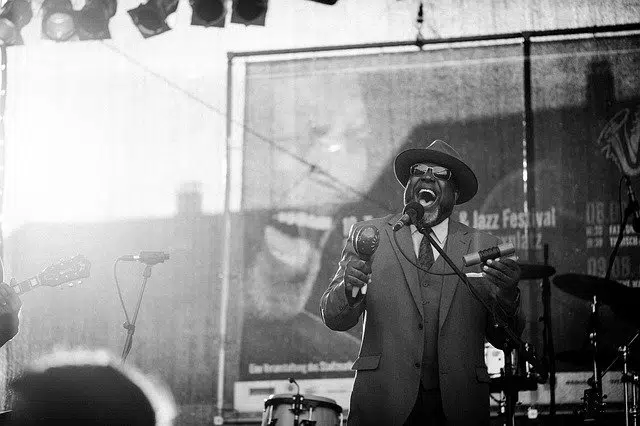
Jazz is a musical genre that emerged at the end of the 19th century.
Jazz is a genre of music that has its origins in various African-American rhythms and melodies. It emerged at the end of the 19th century in the United States and, over the years, spread throughout the world.
On March 6, 1913, the " San Francisco Bulletin " was the first media outlet to make public the term jazz in a newspaper article; On that occasion, its purpose was to refer to the music played by an army orchestra . The first album that included music self-defined as jazz, on the other hand, was released in 1917 by the Original Dixieland Band .
Jazz characteristics
The main characteristic of jazz is that it does not adhere in a structured way to a score, but is based on improvisation and free interpretation . The usual thing, however, is for musicians to play a known theme within a certain harmonic framework, and to let their imagination fly to decorate and modify it according to inspiration.
This freedom of jazz artists explains why the genre does not register massive sales. The public is more accustomed to consuming music subordinated to the melody and structured with a chorus, as is the case with pop .
The most common jazz performance includes a solo instrument (such as a trumpet) accompanied by a rhythm section (drums, bass, double bass) and harmony instruments (piano, guitar). Jazz can be performed by soloists as well as by trios, quartets or the so-called big bands , with multiple members.
Ellington, a great reference
Let's see below a brief review of the lives of three of the most important jazz musicians in history.
Duke Ellington was a composer , arranger and pianist born in Washington DC in 1899. His destiny was music: at the age of seven, he began taking piano lessons, and from the beginning he was influenced by the genre known as ragtime. , one of those who would later contribute to the birth of jazz. Before reaching the age of majority, he made his professional debut and for a few years performed with several bands from his hometown.
In 1922, he was summoned to play in New York, where he gained the experience he needed to create a quintet on his own; He called it The Washingtonians , and it was his one-way ticket to international fame, both in music and in film.

Louis Armstrong is considered one of the great historical figures of jazz.
Holiday, emblem of jazz
Born in 1915 in Philadelphia, Billie Holliday was one of the North American jazz singers who most influenced the history of this genre. Her first years of life were the most unfortunate: she had to go through orphanhood, a rape when she was still a child, prostitution and, finally, prison. However, her decision to participate in a casting as a dancer was her turning point: although she failed completely with dancing , it was through this experience that a pianist summoned her to sing with his band and this led to an important producer and critic named John Hammond discovered it.
At the age of eighteen, he recorded his first album with Benny Goodman, a prestigious clarinetist, and his luck changed thanks to his unmatched vocal qualities . Unfortunately, success overwhelmed her and she did not know how to surround herself with people who would help her get out of the deep depression in which she slowly drowned, until she took her own life in 1959.
Armstrong's talent
Louis Armstrong was an American singer, trumpeter and conductor, born in 1900 and died in 1971. His contemporary and countryman Duke Ellington once said that if there had been a true Mr. Jazz, it had been Louis Armstrong.
He took his first steps into the world of music in New Orleans, his hometown, playing with various groups until 1922, when Joe King Oliver invited him to be part of his band, and this marked a milestone in his career. . A couple of years later, he participated in the recording of several albums in New York and his fame grew rapidly.
